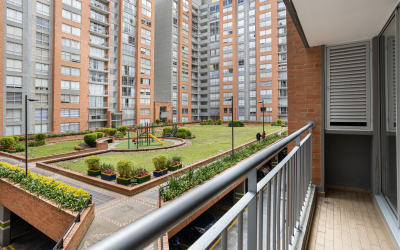Property Investors have always asked the age-old question: House or Apartment, which is the better investment? Let’s take a closer look.
Capital Growth
Land is the most valuable asset and a rare commodity. If you own a substantial plot of land in a highly sought-after area, you will see significant capital growth due to the supply and demand.
If you want to increase return on investment, there are always options when you own land. You can, for example, develop or build a house or an apartment on the land you purchased.
Apartments are capable of generating a 7% capital return in the long term which means the value doubles every ten years. You still own entitlement to a proportion of the land when you own the apartment but the options of what you can do to improve this land is limited therefore producing less capital gain. In saying that, outlay is significantly less for an apartment than that of a house and land package.
Management of the investment property
Ongoing management of a house and land is generally more expensive. There is a lot more to a house and land than an apartment. Repairs and maintenance bills with a house such as painting, fencing, and other expenses are more costly than in an apartment. You would definitely need a managing agent to manage the property on your behalf.
Management of an apartment is generally cheaper because the costs are spread across the owners of the complex. Apartments have a Strata manager and an owners corporation to manage funds and the building on behalf of the tenants, as well as having a sinking fund to cover small ongoing maintenance issues to ensure the complex is well maintained.
There are other costs associated in apartment management like quarterly council rates and of course water rates which are shouldered by the owner and the tenants.
Because of these systems, apartments are easier to manage. These types of properties have an internal check and balance system with the owners’ corporation. Also, having a good strata manager and managing agent acting on your behalf makes apartment management easier.
Tax Benefits for Property Investors
Negative gearing legislation applies to both a house and an apartment. If you incur costs for either a house or an apartment it is tax deductible, the tax treatment is the same. The only difference may be in the Building Depreciation allowance write off. A house may have a higher build cost and therefore receive a greater depreciation benefit.
Cash Flow for the different types of property
Generally, the returns you get for a house rent is less than what you may receive from an apartment. The reason for this is that the house and land will cost you more than an apartment but the rent does not increase in comparison.
In some cases, more expensive houses in high-demand areas show low returns but may give you higher capital growth .
Currently, the vacancy rates are very low for both houses and apartments. However, as the bulk of the new development in Australia has been in apartment-style dwellings in the short term there may be a higher demand for House and land rental properties.
The Financial impact of the different types of property Investments
Banks view the security of a house and apartment the same.They will lend 80% of the purchase price. Because the cost of a house and land is generally higher than an apartment, you will need to have a larger dollar amount as a deposit.
Pros and Cons of House vs Apartment for buyers
The pros and cons of buying a house
Houses offer more space, more renovation options, and more privacy. But the downside is more property maintenance, especially if you have a garden or bought an older property.
Pros
- Floor space. If you want more space for your family to live in comfortably, houses offer far more room to move than apartments.
- Outdoor space. If you have a green thumb, want a space for activities especially if you have young kids, a backyard is useful. You can build a pergola or entertainment area and enjoy the freedom of having your own outdoor space.
- Flexibility. Your house, your rules. Of course, you still have to comply with laws and guidelines such as council and building regulations. But there are no owners’ corporation or strata laws that you need to follow.As long as you follow existing laws and guidelines , you’re free to renovate however you like. You can expand or upgrade the house, adding to your equity and making the place more liveable.
- Privacy. You don’t live in close proximity to your neighbors. You can enjoy your life without having to worry about disturbing your neighbours (or being disturbed by them).
- Greater value. House prices grow faster than apartments. Higher return on value means larger profit and larger savings. Owning a house is more economical in the long run.
Cons
- Higher prices. Houses are almost always more expensive than comparable apartment units in similar neighbourhoods. This means you either save for a bigger deposit, borrow more money or buy a house in a less optimal location.
- Maintenance. A house can be a lot of work for an individual.
- Higher costs (and more bills). Aside from higher maintenance costs and initial outlay for furniture and appliances, house utilities are more expensive.You have more space to heat and cool, more appliances to power, and more bathrooms to provide water for.
The pros and cons of buying an apartment
Owning a unit or apartment means less maintenance, but you have the extra cost of strata or body corporate fees. And your neighbours live just one wall, floor or ceiling away.
Pros
- More affordable. With exceptions, apartments are generally cheaper than houses. According to figures from Domain Group in September 2021, Sydney’s median house price was $1,499,126. The median apartment price was just $802,475. For Melbourne, the median house price was $1,037,923 and the median unit price was $576,879.
- Less maintenance. You don’t have to mow the lawn or tend to the garden when you own an apartment. Maintenance tasks are looked after by strata management.
- Low cost. Less space, cheaper electricity and gas bills.
- Location. Many apartments are built near city centres. You live closer to everything and you have easier access to transportation, schools, restaurants, and offices.
- Extra facilities. Owning an apartment might also give you access to a whole host of building facilities: a swimming pool, gym, tennis court, playground and even a shared garden.
- Security. People with malicious intent often have to pass through several layers of security just to get to your apartment door. And there are many neighbours to provide eyewitness accounts should there be any breach in security.
- Income: If you want to maximise rental income while minimizing your expenses, an apartment can be a better choice than a single-family home because of the higher rental yield and the corporate body typically supplies building insurance, maintenance, and upkeep.
Cons
- Strata/owners’ corporation by-laws. Living in an apartment means abiding by the rules imposed by the owners’ corporation. Pets banned, timeframes for guests, and limited renovation and design and needing approval.It is also impossible to extend or rebuild on the land that apartment owners share, but cosmetic improvements are permitted.
- Fees. Though the amount of fees in a house is much more expensive, the number of fees that you need to keep track of in an apartment can be overwhelming to some.
- Less space. Apartments don’t offer as much living space as houses.
- Less privacy. It’s not just the fees that are shared in the apartment. Your lives are also shared in the apartment experience, for better and for worse. You will see, hear, and experience the lives of your neighbors and they will experience your life, too.
So Apartment or house investment?
When deciding between investing in an apartment or house, there is no right or wrong answer – it will depend on your specific investment goals and financial situation.
Generally speaking, most investors will find that investing in an apartment or house will come down to their investment goals and the market’s housing demand and supply trends.
For example, if you’re looking for a property that can provide you with immediate rental income, then an apartment may be a better choice, as there is a usually higher rental demand for apartments than houses in most rental markets.
Alternatively, if you’re looking for a long-term investment with potential growths, then a house may be a better option, as the land value appreciates stronger over long term and have a longer lifespan.
For home buyers, it is advised to assess your goals and needs and research your target market to find the right investment for you. You should also consider consulting with industry experts with relevant experience and knowledge, such as real estate agents, accountants, and seasoned property investors.
4 Key factors to consider when making property investment decisions
When making any investment strategy, you must do your homework first. Property investment is no different. You must consider several factors when deciding if purchasing property is right for you.
1. Property Appreciation
When deciding whether or not to invest in a property, it’s important to consider how much that property is likely to appreciate over time.
If you’re expecting the property to appreciate at a rate higher than the rate of inflation, then it may be worth investing in. Look at the historical trends in the area to get an idea of how much your property could potentially increase in value over time.
However, if you think the property’s appreciation potential is lower than the rate of inflation, then it may not be worth your money.
2. Age of the Property
Another thing you’ll want to consider when investing in a property is how old the property is.
Generally speaking, newer properties tend to appreciate in value more than older properties do. This is because they often come with more up-to-date features and amenities, which buyers are typically willing to pay more for.
3. Local Economy
The state of the local economy is also an important consideration when investing in real estate. If the local economy is doing well, that’s typically good news for the property market.
However, if the local economy is struggling, that could mean that property values are likely to drop in the near future.
4. Property value & expenses
Finally, don’t forget to take into account the expenses associated with owning and maintaining a property.
As mentioned above, it’s important to budget for any potential expenses associated with owning property. One way to do this is by setting aside a replacement reserve fund. This is essentially an emergency fund that you can use to cover any unexpected costs that may come up, such as property taxes or maintenance expenses.
So Property Investors, what next?
We go back to the core question: A house or an apartment? The answer comes down to how much money you have for a deposit.
An apartment is generally cheaper and easier to manage. If you have acquired a new apartment, the ongoing costs will be minimal for many years and in the right area their will be low vacancy and solid rental returns .
Another major aspect to consider is the location of the investment, whether house or apartment.
You need to consider key points of interest in the property such as shops, transport, schools, etc. If the property is closer to the central hub of the city, it will be more expensive, but it will be better because the demand for those properties will be higher.
The comparisons mentioned above are based on capital prices in a city setting. There will be exceptions to these situation in certain areas where there may be lower demand and higher supply.
Always seek independent advice particular to your individual situation.





